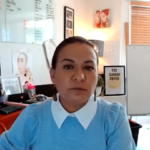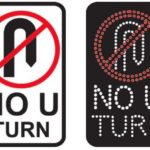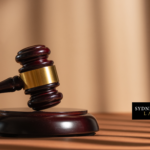Two Arrested in Latest Sydney Anti-Terrorism Raids

Police recently arrested two men in the latest spate of anti-terrorism raids across Sydney.
Omar Al Kutebi and Mohammad Kiad, both aged in their mid-twenties, were each charged with undertaking acts in preparation or planning for a terrorist attack.
It has been reported that police received a tip-off that a terrorist attack was imminent, which prompted them to raid a Fairfield home on Tuesday afternoon.
During the raid, a machete, hunting knife and an Islamic State flag were seized, along with a video purporting to show one of the men discussing his plans for an attack.
While the alleged plan is not yet clear, police have stated that it may have involved the death of a person in an attempt to spread the IS message.
The recent raid is the latest in a nationwide crackdown on terrorism.
New anti-terrorism laws passed in New South Wales late last year invested police and other agencies with greater power to conduct searches on terrorism suspects, and also imposed tougher penalties on persons convicted of terrorism-related offences.
The laws were passed soon after Australia’s largest ever anti-terrorist operation, which involved 800 police searching a number of homes in Brisbane and Sydney.
Three people were detained under preventative detention orders following the raids – the first time such orders have been used since their introduction in 2005.
Yet despite the heavy police involvement, only one person was charged.
Omarjan Azari, a 22-year-old Sydney man, remains in prison after being charged with conspiracy to commit a terrorist attack.
He is alleged to have made plans to film the beheading of a random person in the Sydney CBD.
However, no others were charged following the raids, and police were left red-faced after it was revealed that one of the alleged prohibited weapons seized turned out to be a plastic ornamental sword.
The government and police have told the public to prepare for further anti-terrorism raids, however many have been left questioning the necessity of the new laws.
Last year, Commonwealth Attorney-General George Brandis introduced the Counter-Terrorism Legislation Amendment (Foreign Fighters) Bill 2014.
It includes changes to existing anti-terrorism laws, giving secret intelligence services greater powers to share information with the defence force, with the intention of curbing the activities of Australian citizens fighting with organisations like ISIS overseas.
However, some groups have voiced concerns that the new laws may unfairly target innocent Australians who visit war zones – such as aid workers and those visiting family members.
There are also concerns about changes which will make it easier for police to obtain control orders against terrorism suspects.
Control orders are issued by a court at the request of the Attorney-General and Federal Police. They can prevent a person from leaving Australia, communicating or associating with certain persons, carrying out certain activities, and using some forms of technology.
Those subjected to control orders may also be required to comply with onerous obligations – including wearing a tracking device, reporting to police and not entering certain areas.
Control orders may be issued where it is believed that a person is involved with a terrorist organisation, or may engage in terrorist activities overseas, or has been convicted in Australia or overseas of a terrorism offence.
Proposed new laws will make it easier for police to obtain control orders by reducing the amount of evidence needed to be presented to the Attorney-General.
Civil libertarians have cautioned that this may reduce the ability of the Attorney-General to make fully informed decisions backed by the required documentation.
There have also been proposals for new laws against inciting terrorism, and for widening the application of control orders to allow for the detention of those returning from fighting overseas.
Experts have warned against the impact of the new laws on the Muslim community, with many suggesting that it will erode relations and further victimise Muslims who have already been subjected to an increasing amounts of attacks and discrimination.
That view is shared by Nick O’Brien, a counter-terrorism professor at Charles Sturt University, who worked on anti-terror laws in the UK.
He says that our approach may have the undesired effect of radicalising members of minority groups, and could ‘do more harm than good.’
Meanwhile, a Sydney family who were wrongfully targeted in last year’s raids is attempting to sue police.
Two brothers aged 14 and 15 were handcuffed by police after their home was raided at 4.30am on September 18 last year.
Their mother was also allegedly punched by police after she started screaming whilst attempting to prevent a police officer from ripping off her bedclothes.
The family has commenced legal action in the Supreme Court claiming damages for the harm suffered, however the matter is yet to be settled.






